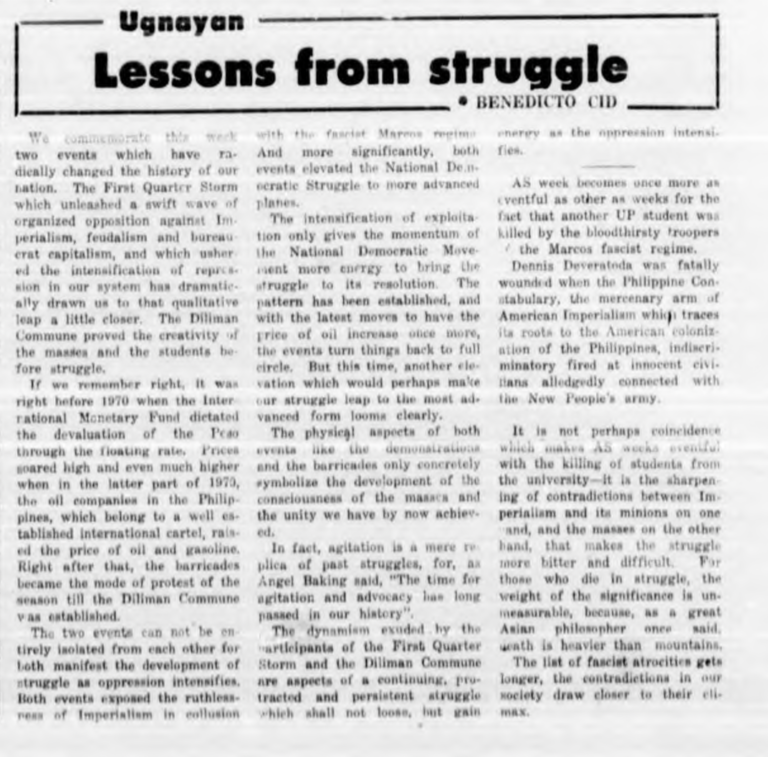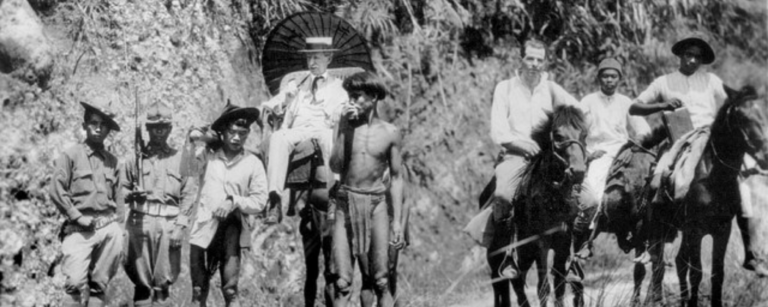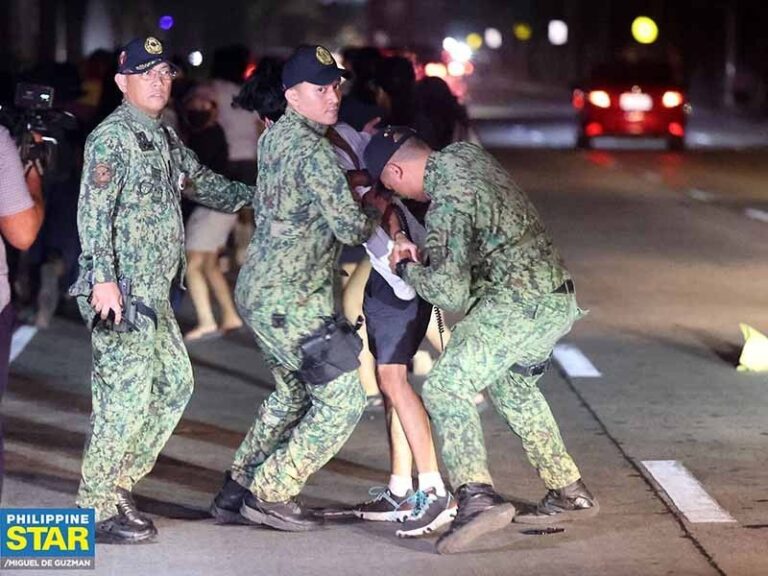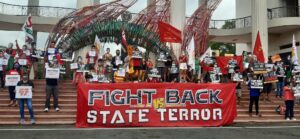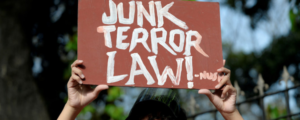
“Press freedom is alive and well,” said Duterte spokesman Harry Roque, arguing “no one has been censored in the Philippines.”
But Energy Secretary Alfonso Cusi’s libel spree proves that the government does not need official censors. The government has turned the law into a proverbial gun to the head, daring journalists to speak truth to power.
Cusi sued 17 journalists for reporting a graft complaint against him. In the original graft complaint, the citizens said that Cusi and other energy officials conspired to give businessman Dennis Uy an unfair advantage in acquiring a 45% stake in the Malampaya gas field. Dennis Uy is a known Duterte ally involved in several other administration issues such as the DITO telecommunications network and the Pharmally scandal.
Cusi and Uy are arguing that the journalists “accused him of graft,” and are demanding each respondent to pay Cusi 200 million pesos.
The controversial two are filing complaints and reporting them to silence the reporters about major corruption allegations. While they claim that this is about defending their honor, Cusi and Uy are only trying to do what the state has always done when their crimes are brought to light — punish journalists for doing their job.
As the National Union of Journalists of the Philippines (NUJP) said, “It is meant to say: be careful what you report next. It is the textbook definition of a chilling effect.”
Responsible journalism is important. Journalists should be careful to get the right facts and must be held accountable when they do not. However, criminalized libel is not just a safety-measure. It is also a weapon used to stifle speech and keep the country in the dark ages.
Even the Supreme Court has recognized this. On January 11, 2021, Associate Justice Marivic Leonen overturned Raffy Tulfo’s libel conviction, questioning libel’s constitutionality. He called it a “relic of the colonial past” and has too often been weaponized to curtail freedom of speech and of the press. He said that press freedom is “the sharpest weapon in the fight to keep the government responsible and efficient.”
The press is not free as long as local and national officials use libel to keep their crimes and incompetence under wraps.
Rappler CEO Maria Ressa’s cyber-libel case is an illustrative example. After Rappler’s critical reporting of the Duterte administration, Ressa fended off case after case against her and her company. The administration filed cases against Rappler, alleging tax problems and foreign ownership issues.
But the most pressing issue was Wilfredo Keng’s cyberlibel case. In 2017, Keng filed a case against Ressa for an article written in 2012, five years prior. They did not dredge up the article because it somehow suddenly became relevant again. Rather, they saw an opportunity to silence Ressa and they pounced.
Libel is a direct manifestation of the government’s legal arsenal to harass and intimidate journalists brave enough to speak truth to power, and expose their corruption and misdeeds.
Alternative media journalists often lack the resources to fight the case in court. Many are forced to retract articles and issue public apologies to escape jail time. They can lose their jobs and credibility just because they could not afford legal fees.
For small-time companies, a serious libel case can get them shut down. Hence, many local journalists avoid talking about the big names altogether, preferring to play it safe than to lose their careers.
These libel cases are part of a bigger effort to silence the press and crackdown on the people’s right to free speech. In the age of social media, trolls drown out news articles and state agents directly attack the critics behind them. They harass journalists, sending verbal harassments, and even death threats daily.
As an alternative media outlet critical of the Duterte regime, SINAG has not been spared. The publication’s social media platforms have been bombarded with state-backed trolling and red-tagging. While trolls fill comment sections of critical publications, Duterte’s mouthpieces like SMNI news and the state-run Philippine News Agency (PNA) are untouched. These outlets get away with their shoddy reporting and state propaganda scot-free.
Other publications have been victims as well. Trolls also flood mainstream media outlets like the Manila Bulletin and Philippine Daily Inquirer. Alternative media outlets such as Bulatlat and Altermidya have even been victims of cyber attacks, which the Computer Emergency Response Team – Philippines (CERT-PH) would later admit were linked to the government.
The National Task Force to End Local Communist Armed Conflict (NTF-ELCAC) has also openly tagged publications like SINAG as communist fronts. This is especially dangerous in light of the Anti-Terror Law, which allow the arrests of journalists without warrants and be imprisoned if their articles fall under the law’s vague definition of terrorism.
For instance, under Section 9, it entails that anyone who “incites others to terrorism” despite the lack of direct involvement may be punished. This may involve filmmakers, artists, writers, and journalists who have crafted and produced pieces critical of the current administration.
But when criminal cases do not work and writers still write despite manifest threats and insecurities, the government’s attempts to silence journalists can turn deadly. They replace the proverbial gun to the head with a real firearm.
The Philippine Center for Investigative Journalism (PCIJ) reported that since President Duterte took office in 2016, state agents have been linked to over 100 attacks against press freedom. It is ironic that Harry Roque said that press freedom is “alive and well,” when 19 of these journalists are neither well nor alive, and the President has said that they only have themselves to blame.
Cusi’s weaponization of the country’s libel laws is just the tip of the iceberg. It is only the latest example of state censorship.
Roque, Duterte, and his allies can deny it all they want, but as long as the law protects the oppressor and punishes the people who point out the oppression, the Philippine press will never be “alive and well.”
#DefendPressFreedom
Featured image courtesy of Manila Bulletin



